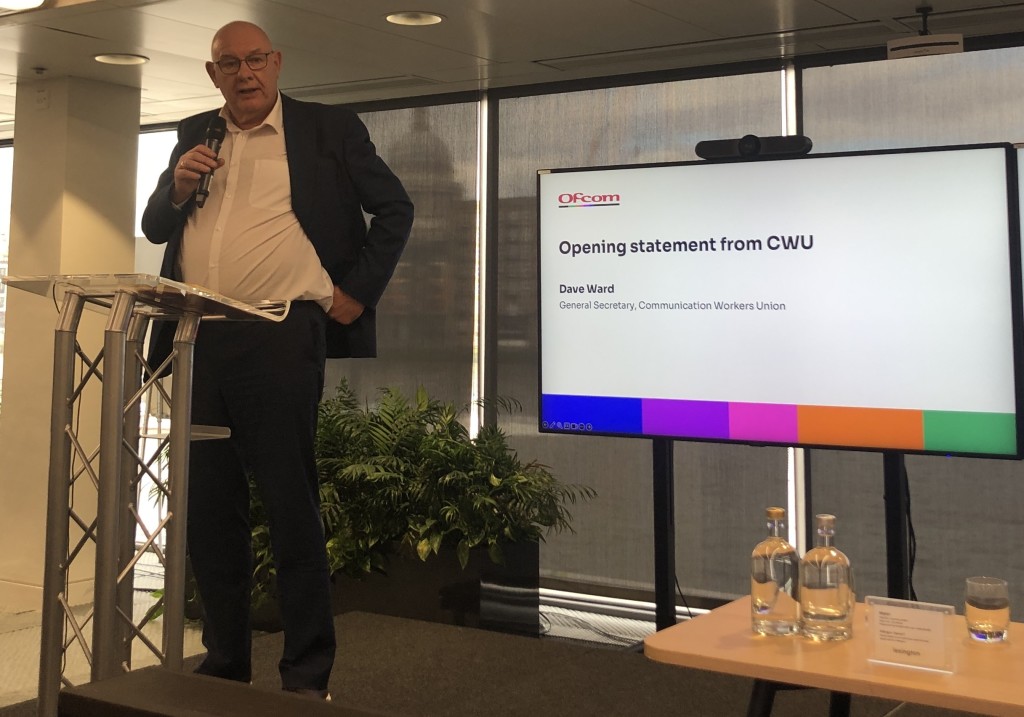Cardology’s David Falkner didn’t miss a trick on panel discussing Royal Mail and USO
The UK greeting card industry was well represented at the Ofcom meeting yesterday, 14 March, convened to discuss the present and future of Royal Mail, notably the Universal Service Obligation and what it means for letter deliveries.
Publishers and retailers were out in force both online and at the actual event which was held at the industry regulator’s HQ as part of Ofcom’s The Future Of The Postal Service review looking at how to keep the business sustainable while meeting public expectations.
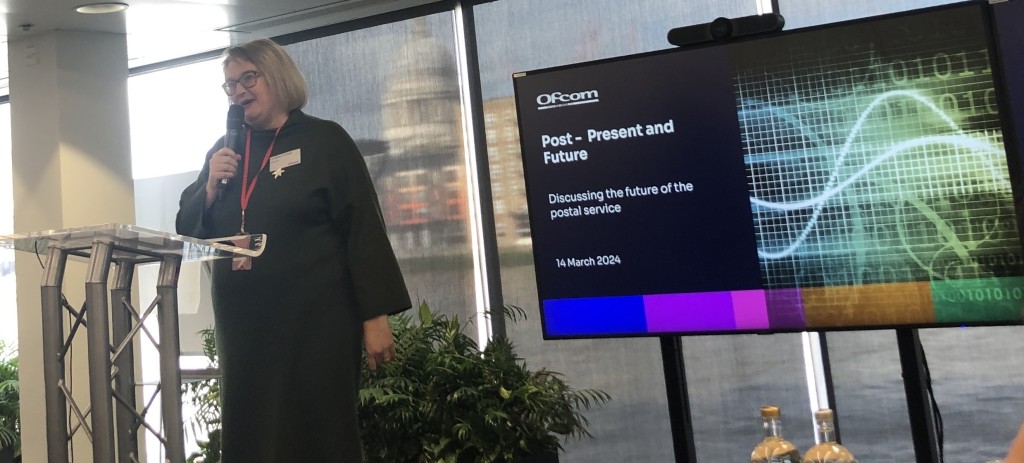
And the star of the show was Cardology director David Falkner who, having headed up the GCA Royal Mail sub-committee, made the most of his opportunity as a panellist at the high-profile meeting to get across, in no uncertain terms, the importance of safeguarding a reliable, efficient and affordable postal service, which is crucial to our social fabric as well as the world-leading greeting card industry.
The meeting was one of the four being held by Ofcom in the UK – Belfast was last week, London yesterday, with Cardiff on Monday, 18 March, and Thursday, 21 March for Edinburgh.
It brought together presentations from the Ofcom team, Royal Mail, and David Ward of the Communications Workers’ Union with two panel sessions, one concerning bulk mail users and David was part of the other representing smes and consumers, alongside representatives from Citizens Advice, Federation Of Small Businesses and Advisory Committee For Older And Disabled People.
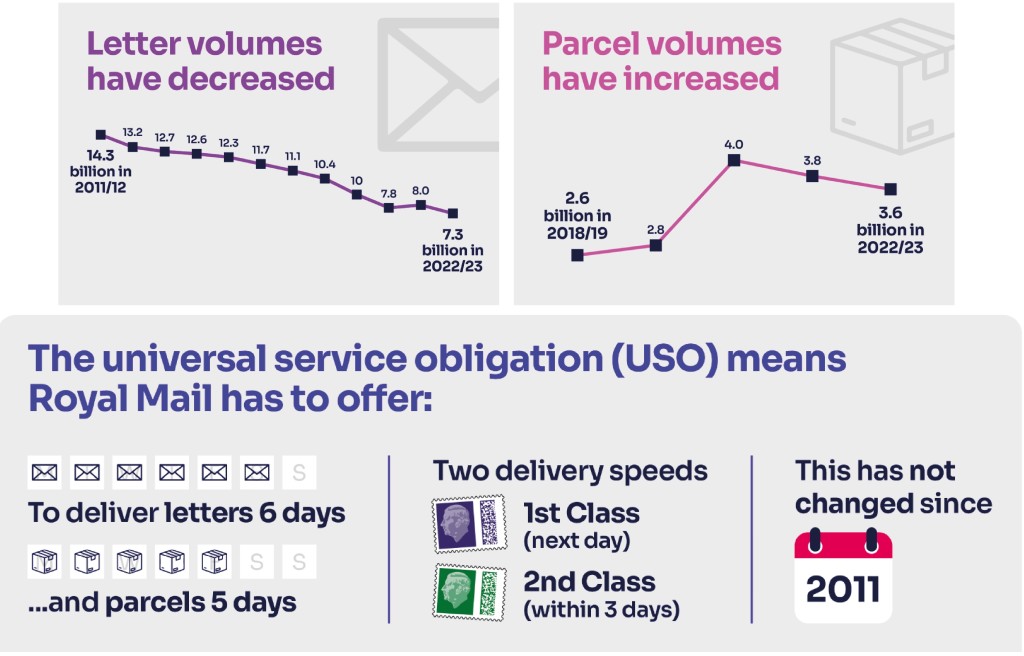
As David highlighted: “It’s fitting that we’re here immediately after Mother’s Day because 8million delayed cards/letters out of 7billion items of letter post may not sound much until you consider that could be 8m parents up and down the country that will not have received an important piece of post.
“And our analysis suggests if some scenarios were introduced it could be even more. That’s why our industry sends resonate and matter.”
He adroitly entreated Ofcom to pause and consider how popular it would be if 8m mums and dads missed out on receiving their Mother’s or Father’s Day card next year, if the regulator did accept the mooted proposals to reduce letter post deliveries down to five or even three days a week, as cost saving measures.

One of the first to ask a question was Heidi Early, co-owner of Earlybird publisher and indie retailer in Stoke Newington, who stressed the immediate need for improvements in Royal Mail’s service.
She said: “I run a greeting card retailing and publishing business. There is nothing wrong with the public’s appetites to buy and send cards – that’s growing – but almost every day I hear of customers’ dwindling confidence in Royal Mail. Something needs to be done sooner rather than later.”
In addition to Heidi, Thortful md Pip Heywood; Fiona Pitt, commercial director of Hallmark; Miles Robinson, co-owner of House of Cards; Woodmansterne md Seth Woodmansterne; and PG’s Jakki Brown were also among those in the audience.
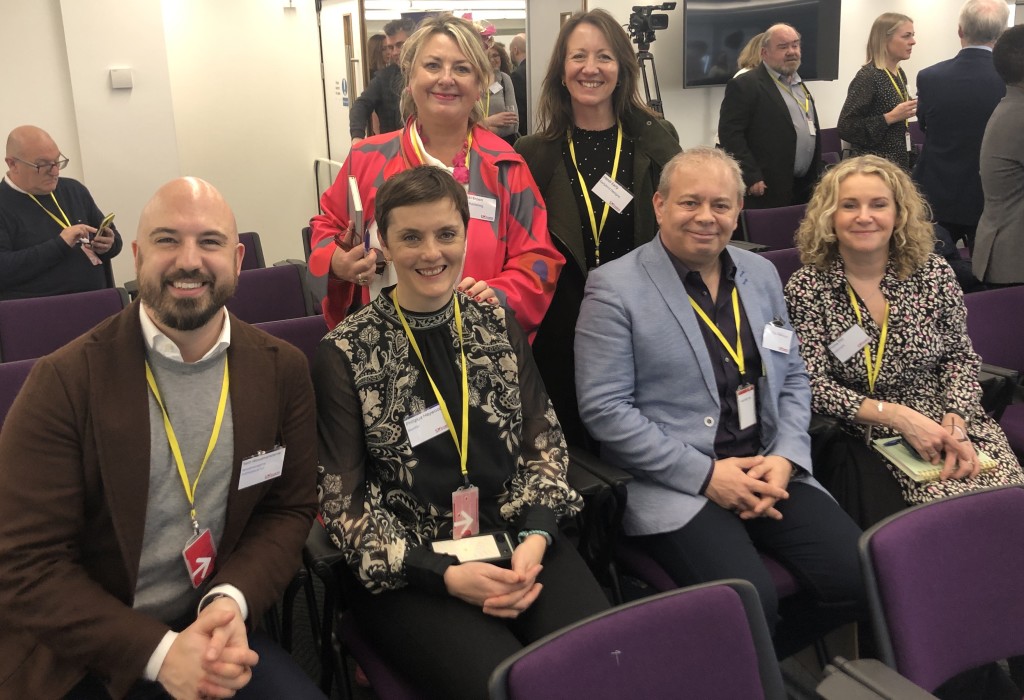
Earlier this week David had met with Kevin Hollinrake, the minister for enterprise, markets and small business, to further ensure his support for keeping the six-day-a-week letter delivery service, and give a fuller understanding of the greeting card industry’s concerns regarding Royal Mail.
And other members of the greeting card community have also been in touch with their mps urging them to air their views with Ofcom as part of the consultative process – anyone wishing to submit their own opinions is asked to download the 10-question consultation response form here and return it to the email address supplied by 5pm on 3 April, 2024.
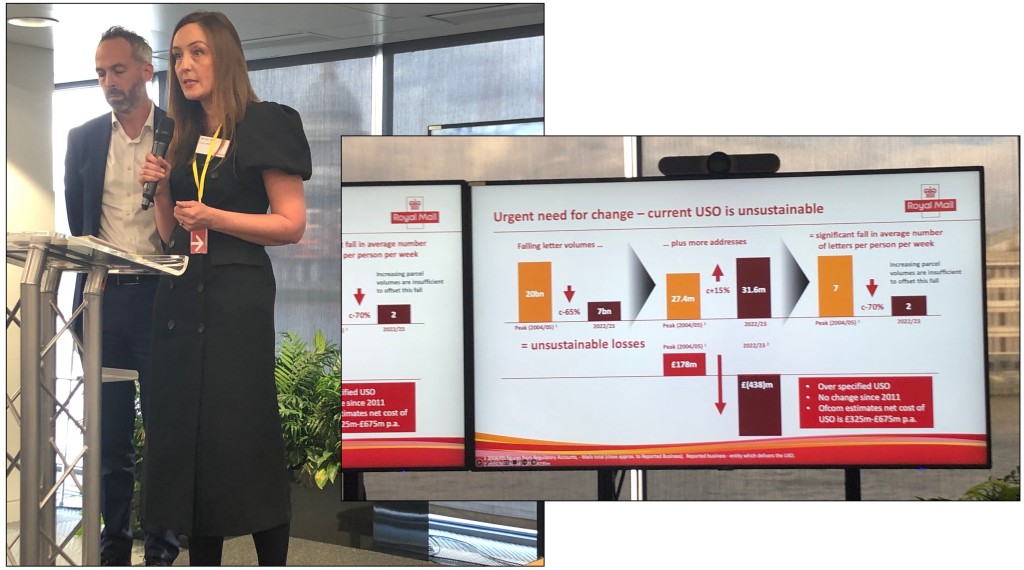
As David summed up: “Yesterday was a wow moment. It was incredible to see our publishers and retailers out in support of our customers – the ordinary families up and down the country who see sending cards as part of who they are.
“That’s why Ofcom deserve credit for acknowledging their surprise at the hundreds of responses their consultation has already received. It’s also why the GCA is sharing the significant insight we’ve gathered, to help Ofcom and Royal Mail understand how the considerable gap between the assumptions in their original study and the public mood can be bridged.”
